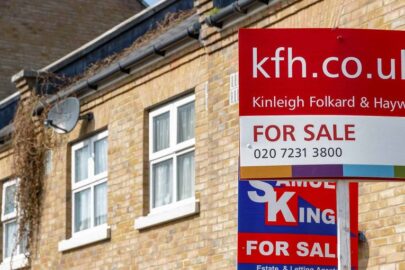Nearly £4.7 billion a year is being spent by UK landlords on their rental properties, an average of £3,134 each, according to new research from LV= General Insurance.
Its research found that for many, the cost and time involved in managing their properties has become so great that over 600,000 (41%) are actively considering selling up.
Costs include: renovations and refurbishments (£370), replacing or repairing the boiler (£370), fixing structural damage (£313), decorating (£265) and garden maintenance (£203).
Two-thirds of landlords say the carpets in their property are most likely to be damaged by tenants (66%), with walls (45%), white goods (27%) and doors (24%) also high on the list. Due to the actions of their tenants, landlords spend the most money on replacing or repairing flooring (£322), white goods (£298), or other items (£256), cleaning at the end of a tenancy (£178) and removing items that have been left behind by previous tenants (£149).
These accidental damage costs may be covered by landlord insurance; however the research found that 13% currently don’t have the right insurance in place, which puts them at risk of losing out on up to £3,000 a year.
Across the UK, the costs of being a landlord vary between regions. The area which has spent the most money on repairing damage made by tenants is the South West, spending an average of £3,461 on repairs. Whereas landlords in the North West on average spend the least on repairing damage, almost £1,000 less (£2,738).
Damage to a property and subsequent repairs can impact on the relationship between landlord and tenant and a third (34%) of landlords admit that bad tenants are the most challenging aspect of the job. Although nearly half (46%) have never experienced a tenant dispute, almost a quarter (23%) have disputes at least once a year, with 6% having them at least once a month. The most common causes for tenant disputes are delayed rent (43%), damage to property (41%), cleanliness (33%), disputes over bills or deposits) (10%), pets (9%) and sub-letting (7%).
Heather Smith, managing director of the LV= GI Direct business, said: “Being a landlord is not without its challenges and it’s clear that many are feeling the strain due to tax and regulatory changes facing the industry.
“Finding the right tenant is crucial. Although the majority rarely experience tenant disputes, it’s clear that, when they do, the disputes are challenging and potentially costly. Our research found that 13% currently don’t have landlord insurance, meaning they are missing out on things such as cover for accidental damage by tenants, loss of rent if the property becomes uninhabitable, and contents cover. Having insurance not only protects landlords from being left out of pocket, but it also provides peace of mind and helps eliminate some of the stress that can come from managing a property.”
Meera Chindooroy, policy and public affairs manager at the National Landlords Association (NLA), added: “Over recent years, landlords have faced a raft of haphazardly introduced new regulations which, compounded by tax changes, have increased the cost of letting. We have not seen any signs yet that the Government intends to pursue a more strategic approach to help landlord’s future-proof themselves.
“The Government’s proposal to abolish Section 21 will intensify the impact that rent arrears and damage to property has on landlords’ ability to run their businesses successfully. On top of the costs which can be covered by specialist insurance, landlords will need to spend more time and money to regain possession of their properties. Seeking information, support and advice, for example through landlords’ associations, can be invaluable in reducing your risks.”
